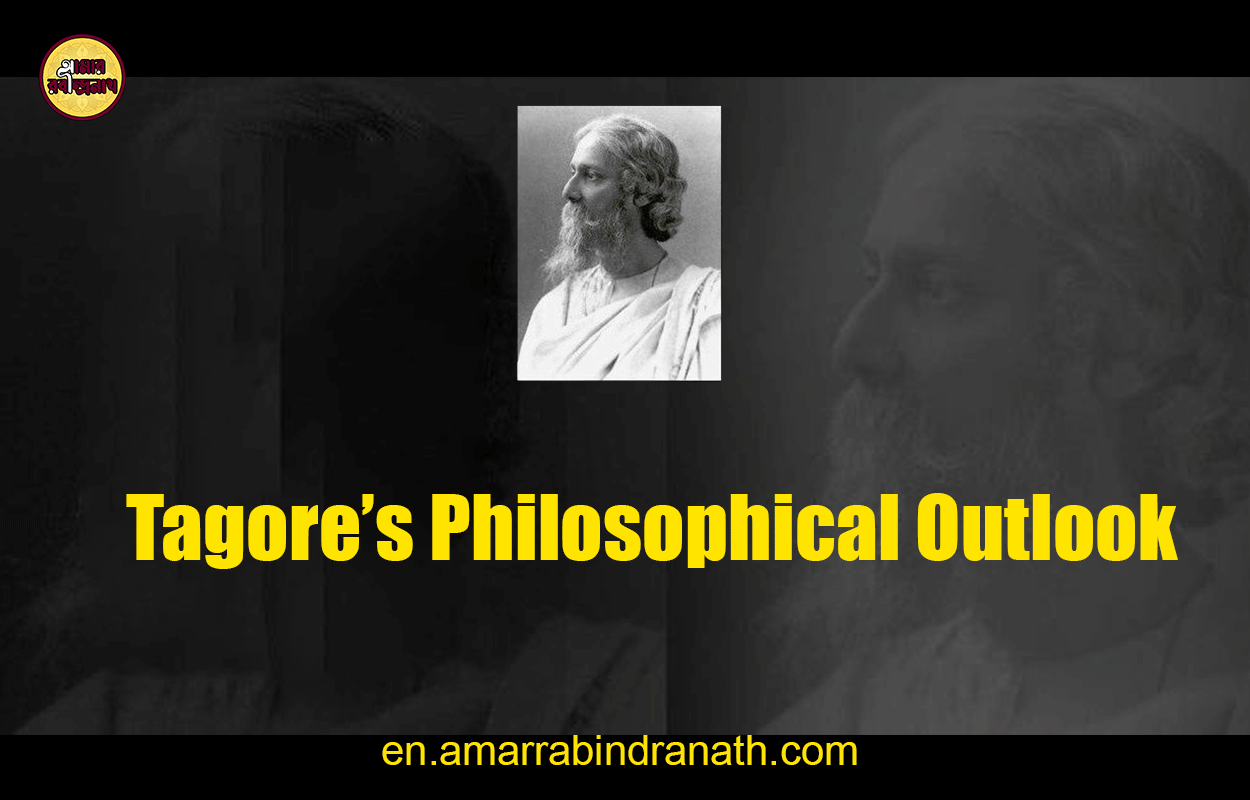Rabindranath Tagore (1861–1941), a polymath of the Bengali Renaissance, was a poet, songwriter, artist, novelist, educator, and philosopher. Tagore’s multi-dimensional talents granted him unique insights into the human condition and its relationship to nature, society, and the divine. His philosophical ideas were deeply rooted in both the traditions of India and the influences of Western thought, resulting in a holistic worldview that championed unity, freedom, and creativity.
Table of Contents
Tagore’s Philosophical Outlook

The Universal and the Particular
One of the central tenets of Tagore’s philosophy was the harmonization of the universal and the particular. He believed that each individual, while being a unique manifestation of the universe, is also intrinsically connected to the entire cosmos. This thought is encapsulated in many of his poems where he describes the individual as a distinct note in the grand symphony of life, contributing to the larger cosmic music.
Pantheistic Worldview
Tagore had a pantheistic approach to divinity. He saw God in every aspect of the world, from the grandest of landscapes to the smallest of creatures. This outlook is evident in his poems, particularly in his acclaimed collection “Gitanjali”, where he writes about perceiving the divine in the mundane, from the chirping of birds to the rustling of leaves.
His pantheism was not merely about God being everywhere but was deeply rooted in the belief that every individual, every entity has a spark of the divine. This makes it a moral imperative to treat all of life with respect and reverence.
Unity in Diversity
Tagore’s travels around the world exposed him to a plethora of cultures and ideologies. He observed the vast diversities of human civilization but was also acutely aware of the underlying unity that binds humanity together. He championed the idea of ‘unity in diversity’, emphasizing that while cultural and individual differences are real and valuable, they should be seen in the light of the larger human fraternity.
Man-Nature Relationship
Tagore had a profound respect for nature, viewing it as a manifestation of the divine. His writings frequently dwell upon the interconnectedness of man and nature. He lamented the increasing alienation of humanity from its natural surroundings and believed that such alienation was a root cause of many societal problems. He envisioned an ideal world where humans lived in harmony with nature, drawing from its wisdom and beauty to lead more fulfilling lives.
In Shantiniketan, the school he founded, the curriculum emphasized a close relationship with nature. Lessons were often conducted under trees, and students were encouraged to observe and learn from the world around them.
Emphasis on Creativity
Tagore believed in the boundless potential of human creativity. He saw creativity not merely as an artistic endeavor but as a means of self-realization. By tapping into our innermost creative energies, he believed, we get closer to understanding our true nature and purpose.
Critique of Nationalism
Tagore’s views on nationalism were complex and often misunderstood. He was proud of his Indian heritage and played a significant role in the Indian nationalist movement, even penning India’s national anthem. However, he was wary of aggressive and exclusionary forms of nationalism. He believed that an excessive focus on national identity could be divisive, leading to conflicts and undermining the broader humanistic values that ought to guide civilizations.
In his essay “Nationalism in India”, Tagore warned against the dangers of blind nationalism and emphasized the need for a world where interactions between nations are based on mutual respect and understanding rather than competition and dominance.
Education as a Means of Liberation
For Tagore, education was not just about acquiring knowledge but was a tool for holistic development. He criticized the British education system in India for its emphasis on rote learning and its disconnection from life. In contrast, he advocated for an education that promotes critical thinking, creativity, and a strong moral foundation.
Shantiniketan, or ‘Abode of Peace’, the institution he founded, was a testament to his educational philosophy. Here, education was deeply intertwined with nature, art, and spirituality, aimed at nurturing well-rounded individuals who are in tune with themselves and the world around them.
Conclusion
Rabindranath Tagore’s philosophical outlook was a synthesis of the ancient and the modern, the East and the West. His ideas, rooted in both Indian traditions and Western enlightenment values, championed unity, freedom, and an integrated understanding of the self and the universe. His vision of a world where humans live in harmony with each other and nature remains deeply relevant in our increasingly fragmented and environmentally challenged world. Tagore’s philosophy invites us to introspect, to recognize the interconnectedness of all life, and to strive for a world where love, creativity, and understanding reign supreme.
